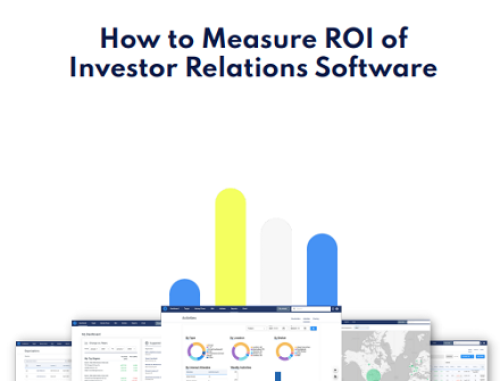A roundup of the key discussions on IR from the 2010 Think Tank
Spotlight on social media
Emergency blogging
‘As part of a crisis communications drill, we identified the need to communicate immediately with the investment community, so we built a ghost site with a blog format. We could turn it on for any kind of crisis.’
‘With blogging, some companies feel it’s going to look bad if they moderate the discussion. But it’s a loaded gun if you let everyone get up on a soapbox under your name and your logo. I don’t think you should cherry-pick, but you have to set the ground rules.’
Digging deeper with training
‘We have a disclosure policy but it’s for our public spokespeople – the people working in our plants probably don’t even know it exists. If they have an issue in their daily work and then go home and talk about it on Facebook, it could become a major rumor. I think we’ll have to give more training, though training tens of thousands of people worldwide is a major challenge.’
Frontline employees as IROs
‘We recently set up an internal employee community website. IR took it as an opportunity to share more broadly with the employee base the same company story we’re out telling investors daily. Giving those messages to employees who are front and center with customers has been very valuable.’
Corporate governance hot spots
Toward engagement
‘How do you bring in the shareholder’s view? A lot of funds just flick the Glass Lewis or RiskMetrics switch and vote accordingly. Instead, shareholders should formulate a dialogue directly with the board. For example, they could have a meeting with the compensation committee chair without management present.’
Regulatory priority
‘One of the biggest issues is the possibility of reforming National Instrument 54-101. The rule is silent on who pays for delivery to objecting beneficial owners (OBOs), so issuers are increasingly neglecting to send proxy material to all investors. In 2009, 36 percent of issuers didn’t pay to deliver materials to OBOs – but the whole purpose of 54-101 was that people should be treated equitably.’
Increasing transparency
‘Transparency works both ways. Why shouldn’t issuers know who their shareholders are? The real worry is the rest of the world knowing as well. How do you protect that identity issue so it goes only to the issuer?’
Activists on board
‘Even if you do battle with activists, they’ll likely win a seat on the board. The question is how the fight affects your business or your customers. There are many risks involved in a proxy fight. In fact, if you decide not to fight, you might end up with some good additions to the board, particularly if they have a track record and can contribute.’
Building internal support
Daily reporting
‘We prepare a daily report for senior management and all of their direct reports. It used to be just the daily market action but they wanted more real-time feedback from the Street so if we have a call with an investor or a one-on-one, we report on it immediately.’
C-suite buy-in
‘When you’re at a small growth company with no cash flow, getting buy-in from management is far easier. Senior management members want to know what the Street is saying and how they can get investors’ attention. The job changes as you get to bigger companies.’
‘It’s tough to find a quantitative measure to judge the value of IR. The real value is in accurately reflecting the concerns of investors to senior management. It’s not about the number of events you attend; it’s how prepared your senior executives are when they go to those events.’
IR as advocate for shareholders
‘Companies in our sector are complex to analyze, and the last year has greatly increased that problem. IR can be the shareholders’ advocate, making sure we report in ways that help them value the company.’
‘You have to think like a board member: what things will they be interested in? If you can relate how your IR program is feeding into the things I’m interested in as a board member, you have a real chance of gaining more access to the board.’
The post-crisis buy-side landscape
Surprise shift
‘As a biotech company, it felt like going through two downturns: first the capital downturn, then six to eight weeks later around half the analysts in our space lost their jobs. We had to focus on our major shareholders and their point of contact. Then we went out by ourselves and built a stronger relationship with those who had been leaning on analysts.’
Risk horizon
‘In the money management business, diversification led to the proliferation of mutual funds. Then absolute return-based strategies led to hedge funds. The next frontier for money management will be all about risk.’
‘From 2003 to 2007, activists were largely focused on balance sheets and loading on debt. That hasSpeculator: Unnatural selection changed. The leverage that can be put on businesses has dramatically fallen, and raising debt to pay out a big dividend or buy back stock can’t be done today.’










